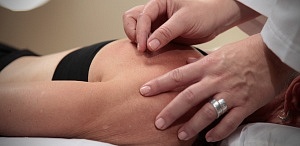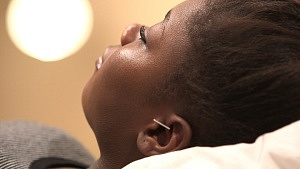Although acupuncture has been around for over 3,000 years, there are many misconceptions about it. In this blog, I’ll debunk some of the common ones.
Myth 1: It Hurts
The needles used in acupuncture aren’t like the needles you are used to in a Western medical setting. They are extremely thin, no bigger around than a human hair or piece of thread; they even bend at the touch. You may feel an initial pinch. Any discomfort will fade within 30-60 seconds. You may experience a heaviness, throbbing or an electrical sensation; that’s your body’s healing energy doing its work. Clients report that the acupuncture treatment itself is relaxing.
Don’t believe me? Check out what some clients who have a fear of needles had to say.

Myth 2: It’s Too Expensive
The cost of acupuncture treatments typically range from $60-150 per session. Some insurance providers cover acupuncture treatments. You can contact your provider to find out if your plan covers acupuncture, how many visits are covered per calendar year, whether you need a referral, and if you have a co-pay or deductible. Acupuncture is a covered expense for Flexible Spending Accounts and Health Savings Accounts.
If money is an issue and your insurance does not cover acupuncture, there are affordable options for treatment. You can get a treated by an acupuncture student at the Midwest College of Oriental Medicine in Evanston for $35 (or for free if you are U.S. Veteran).
You can also watch for events hosted by local acupuncturists. In May, you can try acupuncture (along with other modalities) for $50 and help support Curt’s Café South at the Give Back & Ease Your Stress event. In June, you can get a complimentary stress relief treatment at the So Your Wife Wants You to Try Acupuncture event.
Myth 3: It’s Only For Pain Syndromes
Frequently, when I ask people if they have tried acupuncture, they will tell me they don’t need it because they don’t have any pain. It’s true that acupuncture is very effective for pain management. But acupuncture is also good for allergies/hay fever, side effects from radiotherapy and/or chemotherapy, depression, menstrual cramps, nausea and vomiting, acne, alcohol dependence and detoxification, Bell’s palsy, bronchial, asthma, diabetes, infertility, insomnia, polycystic ovary syndrome, and other conditions.
For a more detailed list, refer to the World Health Organization’s (WHO) official report published in 2003 on the effectiveness of acupuncture based on data from controlled clinical trials.
Myth 4: It’s For the Treatment of Disease
“To treat disease that has already developed is comparable to the behavior of those persons who begin to dig a well after they have become thirsty, and of those who begin to cast weapons after they have already engaged in battle. Would these actions not be too late?” – Huangdi Neijing
Even when someone is aware that acupuncture is effective for much more than pain, they still often think they don’t need acupuncture if they don’t have any health issues.
Acupuncture has historically been a preventative medicine. Qin Shi Huang , the first emperor of China, created a system where doctors were paid throughout the year, but their payments stopped if their patients became ill. An acupuncturist can notice patterns based on minor symptoms and address them before they become a more serious problem.
Myth 5: It Conflicts With Other Treatments
Acupuncture is focused on helping your body heal itself naturally and complements other treatments. Its effects are similar to eating a healthy meal or getting a good night’s sleep.
Acupuncture doesn’t need to be done by itself. The benefits of acupuncture treatments are often noticed by other healthcare professionals: easier adjustments by chiropractors and/or adjustments holding longer when receiving acupuncture, faster gains in physical therapy or a need for reducing or eliminating medications prescribed by doctors.
This can go both ways; a patient may be stalling in treatment progress with acupuncture alone and a chiropractic adjustment, massage, counselling session or a new medication may get things kick-started and moving forward again.
Myth 6: It Doesn’t Work
I fell into this camp. I was having problems sleeping, and tried acupuncture at the insistence of a very persistent friend. I didn’t think someone sticking a few needles in me would help me sleep. After just one treatment, I was able to fall asleep.
Acupuncture has been employed as a health care modality for over 3,000 years, and is receiving wide acceptance as a respected, valid and effective form of health care. Both the National Institute of Health (NIH) and the WHO recognize acupuncture as a valid treatment for a wide range of conditions. Even the United State Airforce uses acupuncture.
According to a study published in the Archives of Internal Medicine, 51% of medical doctors understand the effectiveness of acupuncture, and medical doctors refer patients to acupuncturists more than any other alternative care provider.
In their 1997 Consensus on Acupuncture, the NIH concluded “There is sufficient evidence of acupuncture’s value to expand its use into conventional medicine.”
Still skeptical? What do you have to lose by giving it a try?
Myth 7: If It Didn’t Work the First Time It Won’t Work For You
The number of treatments will vary from person to person. Some people experience immediate relief; others may take months or even years to see results. Chronic conditions usually take longer to resolve than acute ones. Plan on a minimum of a month to see significant changes. Acupuncture’s effects are cumulative, building with each treatment.
Treatment frequency depends on a variety of factors: your constitution, the severity and duration of the problem and your lifestyle.
Acupuncturists use a variety of styles and techniques, so if you do not see results with one acupuncturist, try another.
Ready to Try Acupuncture?
Acupuncture is extremely safe; there is little danger of infection because the needles are sterile and used only once.
It is an all-natural, drug-free preventative therapy, whose most common side effects include a better night’s sleep, mental clarity, more energy, stronger immunity, less pain, lower blood pressure, better digestion and a sense of calm and well-being.
There are several skilled acupuncturists at the Heartwood Center who would love to introduce you to this amazing medicine. Schedule a treatment today!
Recent Posts
-
Can Energy Clearing Help Me Resolve Fear or Anger?
March 18, 2025 -
Does energy regulation mean opening chakras entirely?
February 18, 2025 -
Winter Solstice: The Big Go Within: Diving into Darkness
December 4, 2024

E-Newsletter Sign Up
© 2025 Heartwood. All rights reserved.

